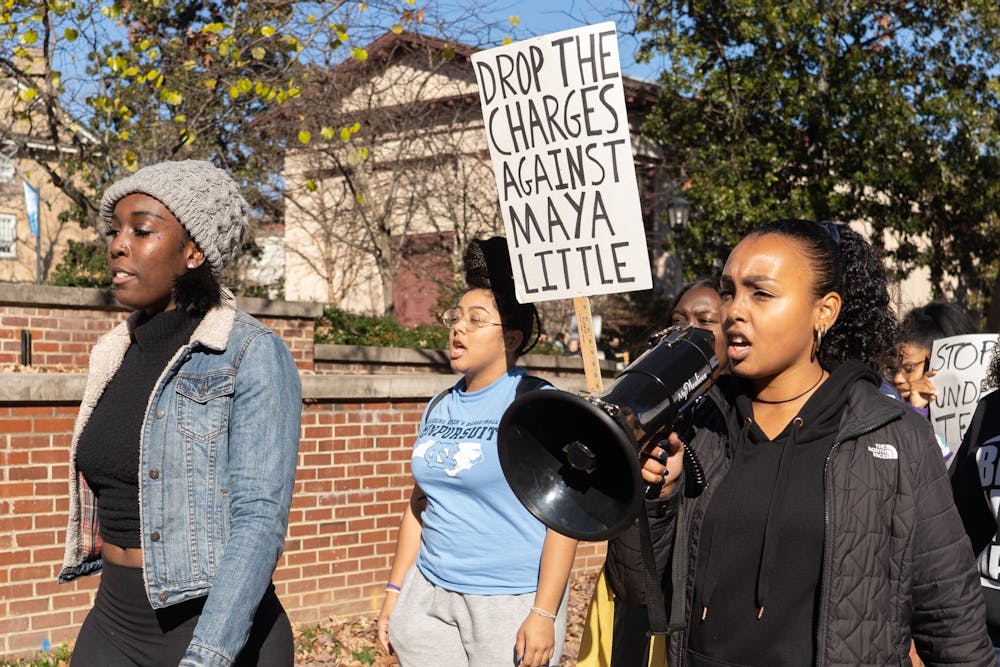Vice Chancellor for University Development David Routh said the money for the settlement would come from “University-owned liquidity,” or current reserves that have been accumulated over the course of several years.
Routh said while no funds would be taken from excess earnings of restricted endowments, the money could come from a combination of unrestricted endowments and University-accumulated surplus and reserves.
Impacts on the University
UNC PhD student Calvin Deutschbein said the source of the $2.5 million is less important than the fact that it’s part of the settlement at all. Specifically, he suggested that instead of the charitable fund, the money could have been used to lower student tuition by $83.84 (which he calculated by dividing the money by UNC’s enrollment) or to fund in-state scholarships.
“I'm thinking about it in terms of that opportunity cost more so than specifically where that $2.5 million dollars originated from,” Deutschbein said. “Because that $2.5 million is going to originate from a source that is maximally protected with obfuscated accounting, it will be extremely difficult to tie to a specific source, but we can understand that it’s drawing from sources that otherwise are now going to be drawn from tuition.”
T. Greg Doucette is an attorney who started a Twitter thread calling into question the timeline of the original lawsuit between the BOG and the SCV, and the eventual settlement. Doucette said it’s difficult to say whether shifting alumni support could significantly impact the University, particularly when the larger UNC System Office ultimately decided the outcome of the settlement case.
“I understand the impulse to say, ‘I'm not supporting this institution anymore,’” Doucette said. “But most of the folks that say that are referring to the individual institution and the individual institution didn’t make this particular choice, it was the statewide leadership that decided to go this particular path.”
Routh said he thinks the settlement case could influence donations toward UNC. It would be “painful” to lose support for certain University funds, he said, but he’s not sure of the scale of the impact.
“We've always been concerned about these kinds of news events impacting Carolina's private support because Carolina's private support is really important to us being everything we aspire to be,” Routh said. “And this one may be different. But what we're hoping, is those who love to support Carolina Covenant students, and those who love to support professorships and research in a specific area, and innovation in the world of higher education will continue to want to support those things and that Carolina can continue to move forward.”
Still, some individuals and groups have already chosen to pull funding. The Mellon Foundation drew recent attention when it withdrew a $1.5 million grant intended for UNC.
According to the Mellon Foundation’s database, since 1971, the organization has awarded 114 grants worth more than $50 million to the University. Laura Washington, the foundation’s director of communications, told WRAL that Mellon withdrew the $1.5 million grant directly in response to the settlement decision.
"Allocating University funding toward protecting a statue that glorifies the Confederacy, slavery and white supremacy — whether from public or private sources — runs antithetical to who we are and what we believe as a Foundation," she told WRAL.
To get the day's news and headlines in your inbox each morning, sign up for our email newsletters.
Continuing controversy
UNC Black Congress Political Education Co-Chair Aja Bullock said she believes the BOG’s decision to dedicate funds to an endowment trust for the SCV is indicative of how the voices of some in the Carolina community are not valued by the University.
“This just shows that the University was built to uphold white supremacy and that’s what it keeps on doing by where it chooses to put its money, by where it chooses to focus its time and effort on, that this Confederate monument and not programs that’ll help people of color on this campus,” Bullock said. “UNC is still upholding white supremacy at the end of the day.”
Apart from the settlement amount, some on social media have also called into question a potential breach of procedural norms in the timeline of the lawsuit and settlement.
Routh said a higher degree of collaboration between the Board of Governors and UNC might have been one method of finding a different solution.
“Unfortunately, as a leadership team, we were not brought in to brainstorm what solutions might have been,” Routh said. “That would have been nice, but we weren't. And so you know it's — unfortunately, this decision was taken out of our hands.”
university@dailytarheel.com




